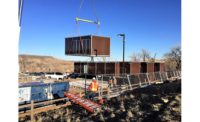
Contractor employees in Colorado and Washington hoping to follow the old adage "Smoke 'em if you've got 'em" and fire up a now-legal joint should know that puts their jobs at risk, even if they do it away from work and on their own time.
Voters in both states legalized private marijuana use in November 2012, and Colorado began retail sales of pot on Jan. 1.
Washington will soon follow suit, with at least five other states—Alaska, Tennessee, Arizona, Kentucky and Florida—reportedly considering legalization. Alaska's OK could come in August.
Still, the message to employees from contractor-employers in Colorado, Washington and other states is "Just say no."
Even the limited personal use of pot, legal or not, runs afoul of the industry's stringent safety and drug-use policies and will likely result in termination—despite the fact that two-thirds of Americans say they disapprove of firing employees for off-the-job pot use, according to a Nov. 13 Huffington Post-YouGov poll.
Nearly the same percentage say an employee should not be fired for off-the-job alcohol use.
But the safety concerns of construction are unique because jobsites are inherently risky places, say most safety experts.
"Do you really want the person working next to you on the jobsite to be impaired? Even if he hasn't smoked anything in the last day or two?" says Rick Reubelt, director of environment, safety and health at Denver's Haselden Construction. "No contractor can afford to take that chance."
Attorneys advising contractors offer basically the same counsel. "Marijuana is still illegal under federal law, so, for now, stick with your current drug-use policies and procedures as long as they are carefully written," says Bob Miller, a construction attorney with Denver's Fisher & Phillips.
"For us, it's business as usual," says Dave Alberts, CFO at Saunders Construction, Denver. Saunders will continue to apply its pre-hire drug screening, conduct "a half-dozen or so" random tests throughout the year, and test after accidents and "for cause."
But Alberts says most firms in Colorado need to recognize "the probability of more employees smoking pot went up exponentially" after legalization.
"But Colorado still has a lawful off-duty-conduct statute that makes it OK to test," says Gene Commander, an attorney with the Denver office of Polsinelli. Many firms, especially those that do a significant amount of federal work, maintain a zero-tolerance policy.
Employees who test positive the first time are terminated immediately, no exceptions.
But others—such as PCL Construction and GH Phipps Construction Cos., both of Denver—apply a "two strike" policy in which employees who test positive the first time are offered education and rehabilitation through some form of an employee-assistance program; then, they can be cleared to return to work. A second positive test brings dismissal.






